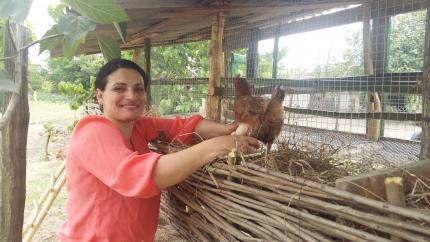
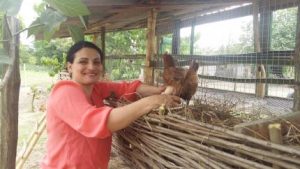 The third grant contest announced within the frames of the Small Business Development Project 2 came to end. The project is initiated and financed by the BP and its partners in Georgia Pipeline Company. The objective of the project is deepening positive relations between BP and communities along the WREP route by investing in communities that demonstrate commitment to provide positive contribution for sustainable improvement in communities and to maintain and enhance sustainability of social-economic development.
The third grant contest announced within the frames of the Small Business Development Project 2 came to end. The project is initiated and financed by the BP and its partners in Georgia Pipeline Company. The objective of the project is deepening positive relations between BP and communities along the WREP route by investing in communities that demonstrate commitment to provide positive contribution for sustainable improvement in communities and to maintain and enhance sustainability of social-economic development.
The grant competition consisted of two stages: in the first phase the business ideas were reviewed by the selection committee and then the business plans. The review of the business idea was finished in late February, 270 applications were submitted in total from sixty target villages. The selection committee considered the applications in accordance with the established criteria and finally 80 applicants proceeded to the business plan phase.
After completion of two-day training on business plan writing 67 participants submitted their business plans for review. The main interest of the applicants was focused on beekeeping, greenhouse production, poultry breeding etc. As for non-agricultural businesses, the main accent was made on bakeries and sewing shops.
The business plan review process consisted of three stages: initial review, site visit and interview with the applicants and business plan presentation. The objective of such a meticulous consideration was not only selection of the best business plans, but also assessment of the applicants’ capacity and motivation. Finally 24 startup microbusinesses were selected for funding.
It should be emphasized that this year the share of the non-agricultural businesses and services was increased quite significantly.
The contracts were concluded with the winning contestants. For the moment all they received funding, purchased and delivered the requested capital assets to the business spots. As in the course of the previous grant competitions the mandatory obligation was beneficiary’s co-finance equaled to at least 30% of the total investment budget. 40,767 GEL were spent for the beneficiaries’ support in total (excluding profit tax).
Below are outlined some expected economic and social results of the third grant competition.
From the economic efficiency standpoint firstly it should be mentioned creation of 24 workplaces and increase of the household income by 30-40%.
As for the social effect, new agricultural and non-agricultural products and services will be created which have been unavailable in the communities until then. It should be also mentioned increased self-esteem and entrepreneurial spirit of the startups due to gained experience and improved skills, their readiness to successfully develop the business they started.
“I did not think that I could win the grant contest, the competition was too high. I want to say a big thanks to BP and CTC since without your help I could hardly buy the sewing machines” – says Ramaz Kapanadze from Amagleba village of Vani district who established footwear sewing shop through the project funding. Over the years he worked as an ordinary worker in other similar shops and recently decided to return to the village of origin. He made a good use of the opportunity given by the project. From the day of beginning he has a lot of clients as his shoes are distinguished with the high quality and reasonable price.
His view is fully shared by Lela Surmava from Guleikari village (Abasha municipality) who established a poultry farm and sells eggs: “I am extremely grateful to BP and CTC, you cannot imagine what this business means for me and my family”. Lela explored a lot of henhouse models in the Internet until she found the optimal option. She is hopeful for her business future and already thinks about buying an incubator.
We wish well the startup businesses in their endeavors!

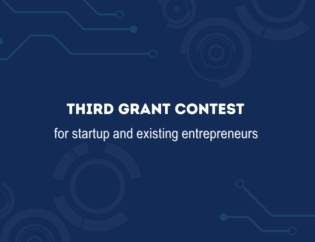
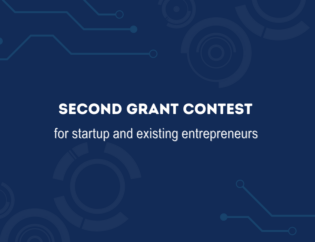
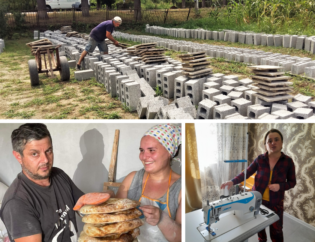

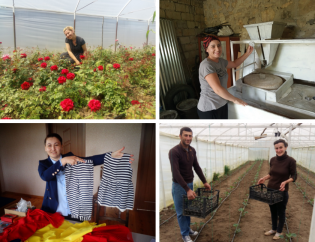
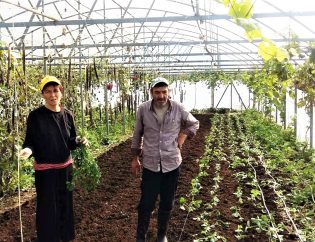
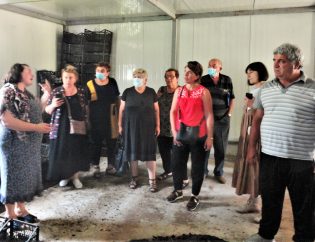
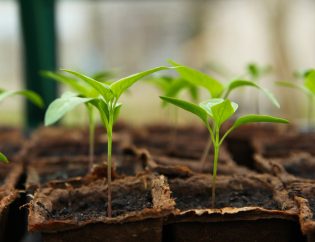


You must be logged in to post a comment.